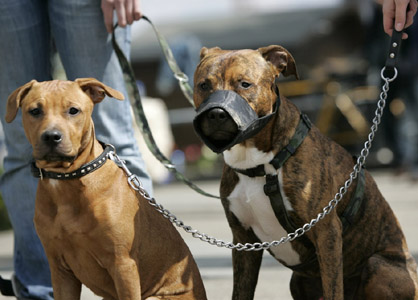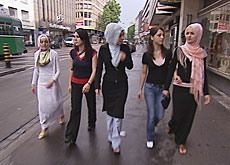
Putting people under the microscope

Leading Swiss ethnologist Jacques Hainard tells swissinfo about his plans to introduce the study of different peoples to a wider audience in Switzerland.
Hainard, director of the internationally renowned Geneva Museum of Ethnography, hopes to extend the museum as a way of drawing the crowds to its rich and unique collection.
He adds that ethnology is not just about the past – there is much to be learned from the discipline today.
Best known for his provocative exhibitions, Hainard used to head Neuchâtel’s Museum of Ethnography.
He was drafted in to Geneva in 2006 to shake up and modernise the museum. But residents have blocked plans to give it a new building.
swissinfo: How can ethnology, the scientific study of different ethnic groups, help us in Switzerland today?
Jacques Hainard: Ethnology is not very well known among the general public. Ethnologists are often confused with those who deal with the past, such as historians or archaeologists. But actually our work is aimed at helping better understand modern-day man.
We can raise real issues in many different areas of life. We don’t necessarily offer definite solutions, but we are able to take an important, often critical look at a whole series of different phenomena.
But this unsettling viewpoint often puts off politicians or officials from working with us. Nowadays society finds it difficult to ask tricky questions. We have lost the sense of debate here in Switzerland. Critical analysis is taken as a personal attack.
What fascinates me about this job is being able to say that we are not guardians of the truth. This small uncertainty forces each one of us to think differently and to demonstrate greater generosity and tolerance towards others.
swissinfo: The rest of Switzerland often thinks of Geneva as somewhere exotic. What is your impression of the city?
J.H.: What strikes me first is that Geneva is like a magnet. Everyone wants to come to here. My friends, who didn’t always want to come to Neuchâtel, now call me to see when they can stop by.
Geneva is both a very international and very local city. The Ethnography Museum has to find its way between the two. The museum and its collections have an international reputation but have slightly lost their local roots.
You also have to get used to Geneva politics, which are much more theatrical than in Neuchâtel. You have to put yourself on show or demonstrate that you are not happy about something. Politicians try to outdo each other by taking positions on certain issues or behaving in a way to attract attention.
Geneva is also a centre for business and international relations. That’s why the rest of Switzerland often thinks of Geneva as having rather a high opinion of itself.
swissinfo: Tell us more about the architecture competition you are planning for the museum extension.
J.H.: The museum, which housed in an old school, currently doesn’t have proper visitor infrastructure – it has to be more accessible.
It’s also in a paradoxical situation, boasting an excellent ethnographical collection of 100,000 objects, but only being able to display a small part of it.
We therefore have to open up this rich ethnographical collection which was originally put together by people from Geneva. This jewel has to find the display it needs to shine.
swissinfo: Do you plan to collaborate with other institutions?
J.H.: That has been my objective ever since my arrival: to reintegrate the museum into the local area and the famous rue des Bains, which is buzzing with art galleries and a modern art museum.
They have already created an association which has accepted the museum as a privileged member. We take part in joint events organised by the association.
In any case, we should work together, create events and join forces. Modern art – the approach artists have towards certain objects and society – is not very different from ethnography. At my exhibitions in Neuchâtel I was sometimes described as a contemporary artist.
swissinfo-interview: Frédéric Burnand in Geneva
Born in 1943 and studied art and literature in Neuchâtel.
Curator of the Museum of Ethnography and the Swiss Museum of Popular Traditions in Basel from 1969 to 1971.
Project leader at the Ethnological Institute in Neuchâtel from 1973 to 1980.
Curator of the Museum of Ethnography in Neuchâtel from 1980 to 2005.
Currently Director of the Museum of Ethnography in Geneva.

In compliance with the JTI standards
More: SWI swissinfo.ch certified by the Journalism Trust Initiative





































You can find an overview of ongoing debates with our journalists here . Please join us!
If you want to start a conversation about a topic raised in this article or want to report factual errors, email us at english@swissinfo.ch.